“Wasl” Newsletter: Issue 12
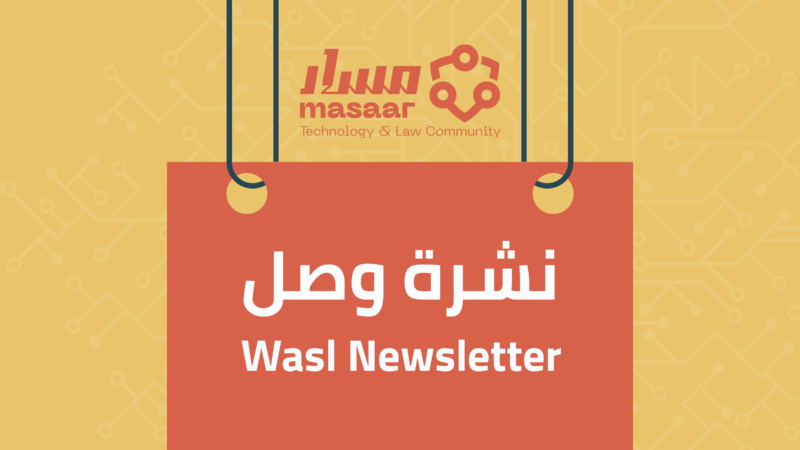
SMEX and 7amleh are Collaborating to Host Digital Rights Events
SMEX will host Bread&Net Online: Digital Rights in Times of War on May 13, 14, and 15. This event features panel discussions that will address regional challenges related to internet access and shutdowns, content moderation, misinformation, and data privacy, among others. 7amleh will host their annual Palestine Digital Activism Forum (PDAF) on June 4 and 5. This year’s event will focus on AI, titled Artificial Intelligence (AI): Revolutionary Promises & Discriminatory Realities. The forum will explore AI’s potential for positive social impact and driving innovation forward. It will also highlight the horrific consequences AI-fueled technologies have had on Palestinians. This includes the use of AI-targeting systems and facial recognition technologies during wartime and the mass surveillance of social movements.
Bread&Net Registration
PDAF Registration
Masaar – Technology And Law Community Activities

Tech and Law
Data Protection Center: Masaar’s Proposal on the Executive Regulations for the Data Protection Law
This paper seeks to present a practical proposal for the formation of the Personal Data Protection Center, which would be the responsible body for implementing the Personal Data Protection Law. The paper proposes standard frameworks for the rules that should be followed. It also points out the concerns that should be considered to ensure proper implementation of the law.
English | Arabic
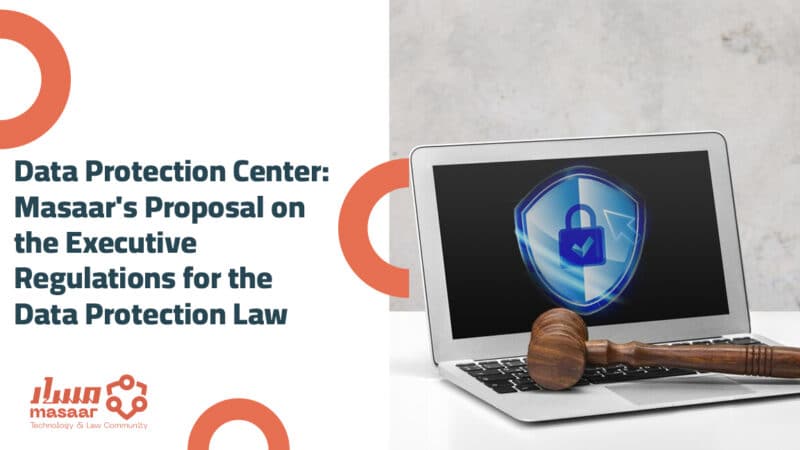
Explanatory Memorandum: Legislative Effect of the Crime of Violating Egyptian Family Values
This explanatory memorandum aims to highlight several points related to the crime of “violating the values of the Egyptian family.” It discusses the legislative context for the enactment of Article 25 of the Anti-Cyber and Information Technology Crimes Law and concerns regarding its constitutionality. The memorandum also discusses the quality of the legislative drafting of Article 25 and the impact of its ambiguity, as well as the impact of contradictory judicial applications of the article.
Arabic
Privacy
Privacy-First Marketing: Principles, Applications, and Challenges
This paper delves into the privacy-marketing approach. It examines the evolution of data protection laws and regulations and the rise of PFM as a response to change. This is followed by an analysis of the importance of PFM and its principles, with a particular focus on data minimization, purpose limitation, consent, and transparency.
English | Arabic
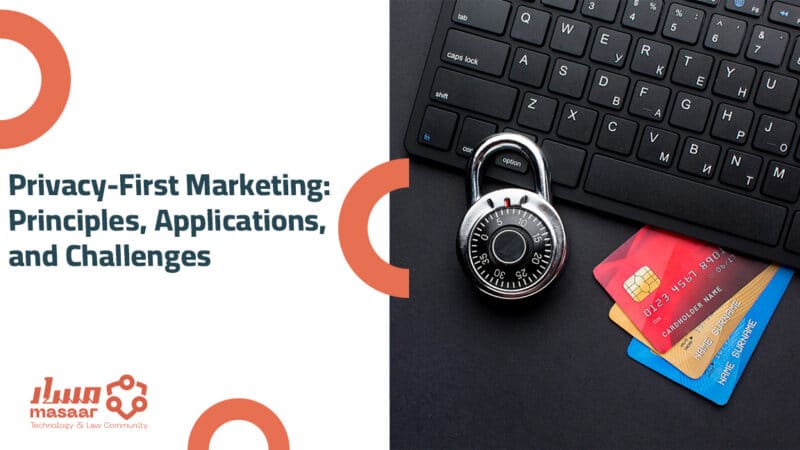
Artificial Intelligence
Regulating AI: Approaches to Ensuring Safe Use of the Technology
This paper seeks to provide a simplified picture of the complex scene of the efforts to regulate AI technology and industry. It poses the question of whether regulating AI is a necessity and asks questions about who should be responsible for setting the regulatory frameworks for AI and what aspects such regulatory frameworks should address. The paper also discusses the potential effects of regulating AI on human rights.
English | Arabic
Free Internet
The Intersection of Cybersecurity and Digital Rights
This paper seeks to explore the different characteristics of the intersection of cybersecurity and digital rights in Egypt. It starts with an explanation of how cybersecurity intersects with digital rights and introduces the right to cybersecurity. The paper proceeds to discuss the main features of cybersecurity in Egypt through the cyberthreats faced by it, as well as the legislative and institutional frameworks for dealing with these threats, and the political exploitation of cybersecurity in Egypt.
English | Arabic
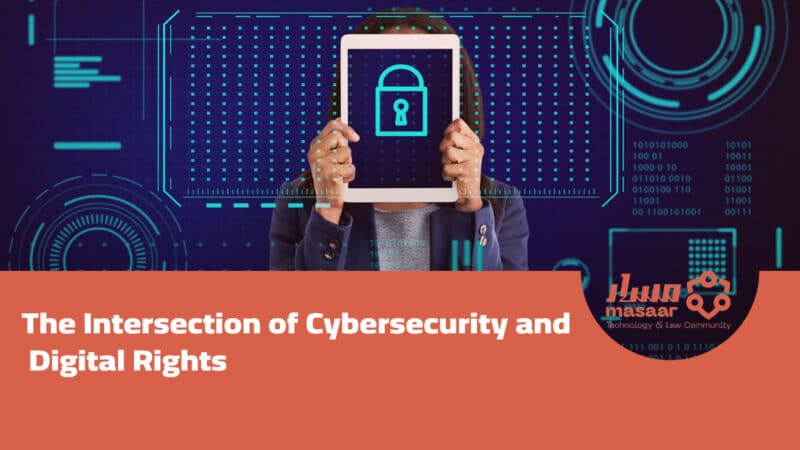
Social Media Platforms in the Age of the Fediverse
This paper seeks to provide a definition of the Fediverse, its core idea, and its technological foundation. The paper also discusses the philosophy on which the Fediverse is based and its objectives. Additionally, the paper provides a brief historical background of Fediverse and its most important applications. Finally, the paper discusses the future of the Fediverse, available opportunities, development potential, and the challenges and efforts needed to face them.
English | Arabic
Tech and Equality
Bridging the Gender Gap in Education through Digital Technologies
This paper aims to offer a comprehensive understanding of the role digital technologies play in bridging the gender gap in education. It begins by analyzing the limitations of conventional methods in addressing this issue. Subsequently, it explores how digital technologies empower girls and women to exercise their right to education.
English | Arabic
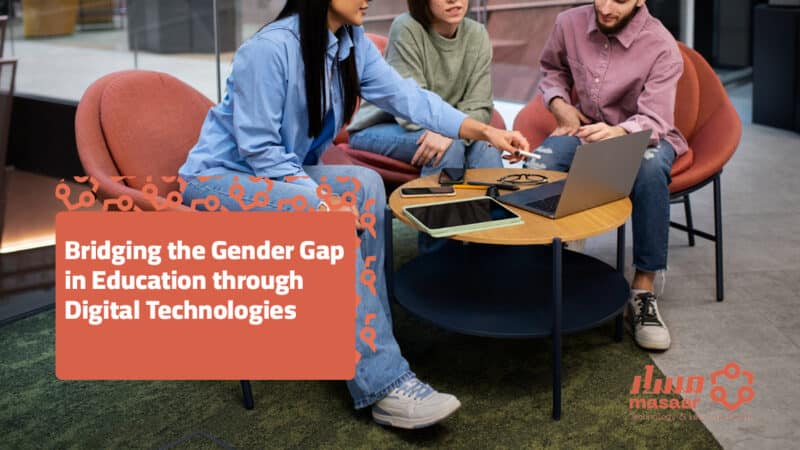
The Role of the ICT Sector in Empowering Egyptian Women
This paper explores Egypt’s ICT sector’s potential to economically empower Egyptian women. It focuses on how the sector can create more employment opportunities for women. Additionally, the paper discusses the potential of the ICT sector to socially empower women, which can further contribute to narrowing the gender gap.
English | Arabic
Internet Governance
Beyond Infrastructure: Egypt’s Approaches to Internet Governance
This paper aims to provide a comprehensive overview of the Egyptian state’s approach to Internet Governance over the past three decades, spanning from the latter half of the 1990s to the present. Throughout this period, the Internet has undergone significant transformations, becoming an integral part of daily life for people worldwide. Concurrently, Egyptian society and its state have also experienced notable changes.
English | Arabic
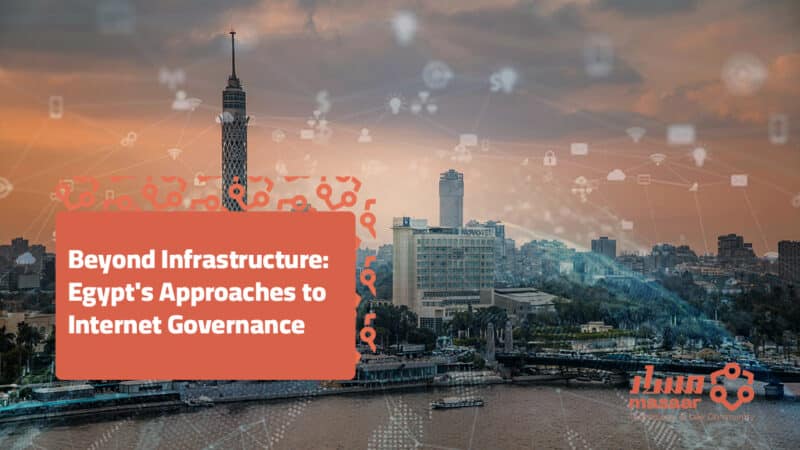
From Access to Empowerment: Internet Access as a Basic Right
This paper discusses the call to recognize the right to internet access as one of the basic human rights in today’s world. It attempts to answer two questions: Why must we establish a basic right to internet access? How do we reach a comprehensive definition of this right to ensure that access to the Internet is universal without discrimination?
English | Arabic
Digital Media
The Impact of Online Surveillance on Press Freedom
This paper seeks to shed light on the impact of online surveillance on press freedom. The paper discusses the challenges that online surveillance poses to investigative journalism and freedom of information. The paper also addresses the impact of online surveillance on journalists and the challenges they face in the digital age.
English | Arabic
From the Arab Region
Position Paper on YouTube’s Impact on Palestinian Digital Rights during the War on Gaza
7amleh – The Arab Center for the Advancement of Social Media issued a position paper titled “YouTube’s Impact on Palestinian Digital Rights during the War on Gaza”. The paper addressed YouTube’s policies, discriminatory practices, and its compliance with international law. The paper also discusses the policies’ impact on Palestinian digital rights.
Link: English | Arabic
It’s not a Glitch: How Meta Systematically Censors Palestinian Voices
Access Now published a report on how Meta is systematically silencing the voices of both Palestinians and those advocating for Palestinians’ rights. The report delves into the roots of this censorship, highlighting how the company must overhaul its rights-violating and discriminatory content moderation policies.
Link: English
Research: Searching for Signal – Lebanon’s Telecom Project
SMEX published a report that delves into the factors that have led the telecom sector in Lebanon to its current state of inefficiency and dysfunctionality. Venturing beyond statistics, the report probes into the real impact of the sector’s deteriorated services on the daily experiences of marginalized communities across Lebanon.
Link: English | Arabic